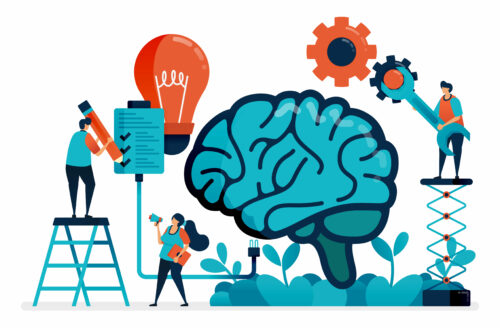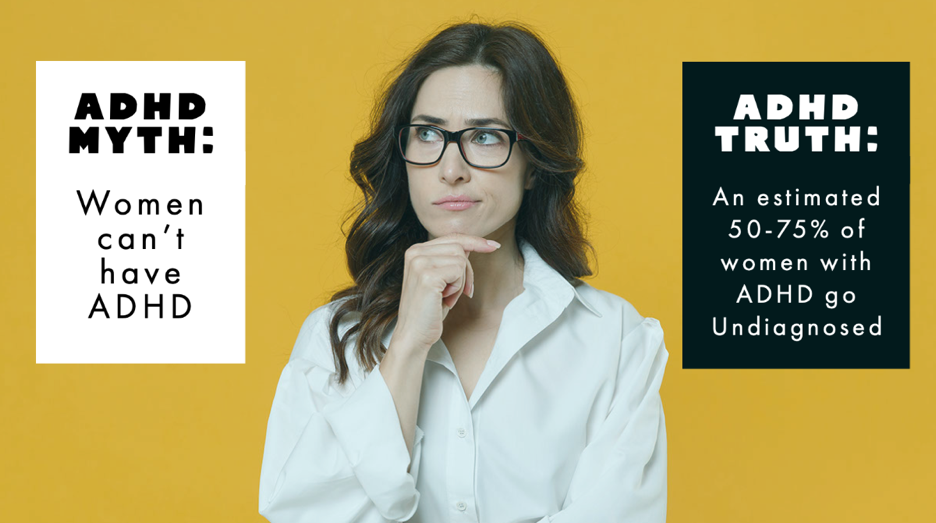Executive Function and ADHD: A Close Relationship

Executive Function and ADHD
You’re staring at a blank document screen, watching the cursor blink. You have a paper due tomorrow, and you know you’d better start working on it. But somehow, it is impossible to actually start working.
Your brain feels stuck, as if there’s some kind of blockage preventing you from actually working. On top of that, it feels overwhelming to even know where to start. You become frustrated and slam your laptop shut.
Does this sound familiar? If you live with ADHD, these situations may happen because of an executive function deficit.
Executive functioning is an important set of brain functions that allows us to complete advanced tasks like working towards goals and sustaining attention. ADHD causes adults to have problems with executive functioning, which can make life difficult when the symptoms are left untreated.
So what is executive functioning, exactly, and what does ADHD have to do with it?
What Is Executive Functioning?
The term executive functioning refers to a set of cognitive processes and skills that allows us to make decisions, prioritize tasks, work toward goals, and more. These skills are a result of teamwork that happens between several different areas of the brain, but it’s the prefrontal cortex that’s primarily responsible for them.
In some ways, executive functioning is like the CEO of the brain. Other parts of the brain help us do things like move our muscles in the way we want or to know when we’re in pain. But our executive functions are what allow us to plan, set goals, keep track of things, and see the big picture. Other brain functions can focus solely on what they are responsible for. Our “brain CEO” is able to oversee everything going on, prioritize, and make decisions accordingly.
Imagine a small child sitting in front of a piece of chocolate cake. The child is told, “Don’t eat this piece of cake. If this piece of cake is still here when I return in 5 minutes, you can have the cake and a popsicle.”
If the child hasn’t developed strong executive functions yet, they may eat the piece of cake that’s in front of them. Their “brain CEO” is absent, and they may react impulsively. Or they may not even remember what they were told — and simply eat the cake because it’s cake, and it’s in front of them.
Someone with strong executive function can see the big picture. They can have self-control and wait for the popsicle if they really want it. Or, they may think, “I don’t really like popsicles, and I’m starving now. It isn’t worth it to me to wait. I’ll just have the cake now.”
The point is that either way, their executive functioning allows them to remember the instructions, see the big picture, prioritize their needs, and make the best decision.
Executive functioning skills can be divided into three main areas of brain function:
- Working memory
- Flexible thinking
- Inhibitory control (or self-control).
Within those 3 broad areas, there are 6 essential executive functioning skills. These skills were identified by Dr. Thomas Brown, a researcher in the area of ADHD and executive functioning.
The 6 essential executive functioning skills that Dr. Brown identified include:
- Organizing, prioritizing, and activating for tasks
- Focusing, sustaining, and shifting attention to tasks
- Regulating alertness, sustaining effort, and processing speed
- Managing frustration and modulating emotions
- Utilizing working memory and accessing recall
- Monitoring and self-regulating action
There are certain conditions that cause some people to have impaired executive functioning. Some people, like people with ADHD or learning disabilities, are born with weak executive function. Others may develop a brain injury or disease that causes poor executive functioning later on in life.
Executive Function and ADHD are linked – what about other disorders?
ADHD is a common cause of poor executive functioning, but other disorders that affect these functions include:
- Traumatic brain injury
- Dementia
- Schizophrenia
- Depression
- Autism
- Neurocognitive diseases
- Alzheimer’s disease and dementia
People who have poor executive functioning, like people with ADHD, have a difficult time prioritizing tasks and seeing the big picture. They may struggle with planning and problem-solving, or become overwhelmed when having to make important decisions.
How does ADHD affect executive functioning?
Neurodevelopmental disorders, including ADHD, affect the brain’s executive functioning. In fact, many ADHD symptoms are simply a result of the way this disorder impairs executive functions. The relationship between ADHD and executive functioning is so closely related that we could have easily named ADHD executive function deficit disorder.
If you live with ADHD, you may have looked at the list of 6 executive functions above and recognized them right away. That’s because most people with ADHD struggle with all of these executive functioning skills.
Working memory
Working memory is the executive function that allows you to recall both verbal and non-verbal information. One of the principal symptoms of adult ADHD is forgetfulness; if you live with ADHD, you already know this. Forgetfulness may lead you to misplace objects, miss deadlines, or forget about important dates and meetings. You might also forget instructions you are given almost immediately after hearing them.
This isn’t because you aren’t intelligent — it’s because of the way ADHD affects your executive functioning. Without access to working memory and recall, it can be extremely difficult for people with ADHD to remember things.
Organizing and prioritizing
Organization is one of the main areas of struggle for people with ADHD. This can show up in both your mind and your physical space. Your home, office, or car might be messy and disorganized, and this might cause you to misplace things constantly.
But disorganization can also show up in tasks. Maybe you’ve had the experience that, when faced with a big project with multiple steps, you just can’t seem to figure out what to do first.
This is an executive function deficit. You aren’t a “slob,” nor are you an unprofessional person.
Sustaining and shifting focus
Inattention and distractibility are key characteristics of ADHD. Typically, people with ADHD have a difficult time sustaining attention on one thing, especially if that thing is tedious or uninteresting.
But people with ADHD also experience hyperfocus, which is when their attention gets so locked onto one thing that you don’t notice anything else going on around you. This is because it’s also difficult for people with ADHD to regulate and shift their attention from one task to another.
Regulating effort and alertness
Many adults with ADHD experience daytime drowsiness. You might feel totally alert when you’re doing something that interests you, but be overwhelmed by sleepiness as soon as you need to complete a boring or tedious task. This may be related to an executive function deficit.
Even if you don’t experience drowsiness, you might find it challenging to sustain effort and keep working at something, especially if it bores you. For example, you might have a long-term goal of finishing a college paper. But you might have a hard time continuing to work on the paper, step by step, in order to reach that goal.
Regulating emotions
One symptom of adult ADHD that isn’t often talked about is impulsive emotional outbursts. Adults with ADHD tend to have a low tolerance for frustration and boredom. They also have a high level of impulsivity. This can cause them to have emotional outbursts when they’re angry or frustrated. Does this ever happen to you?
Having a hard time regulating emotions is caused by a deficit in executive function. You may not consider yourself to be a particularly emotional person, but still find it hard to contain your emotions when they come on. It might feel very difficult to use coping skills to calm yourself down.
Monitoring and self-regulating action
Being able to self-reflect, and motivate yourself to work toward your goals, is an essential executive functioning skill — one that many people with ADHD have a hard time with. You might know exactly what you want to achieve, and even have a clear understanding of what you need to do to get there — but somehow, you still can’t seem to force yourself to actually start working.
This might have caused other people in your life to label you as “lazy” or “wasting your potential.” In reality, that’s far from the case. But the executive function deficit that comes with ADHD makes it very hard to motivate yourself into action.
Trusted Online ADHD Treatment for Adults with Focus Partners
On top of the effects of the deficits themselves, having trouble with executive functioning often makes people with ADHD feel ashamed and embarrassed. They may feel like they’re not living up to their full potential, or that their peers are more accomplished than they are.
An executive function deficit does not make you stupid, lazy, or irresponsible. And with the right treatment, ADHD symptoms can become a lot easier to manage. Focus Partners can help with out telehealth-based online ADHD treatment for adults, and we’re here to listen to you and help unlock the full power of your potential. Get started by taking our initial online ADHD assessment and find your focus now. Our team currently provides ADHD treatment services online in Ohio, Illinois, Michigan and New York.



